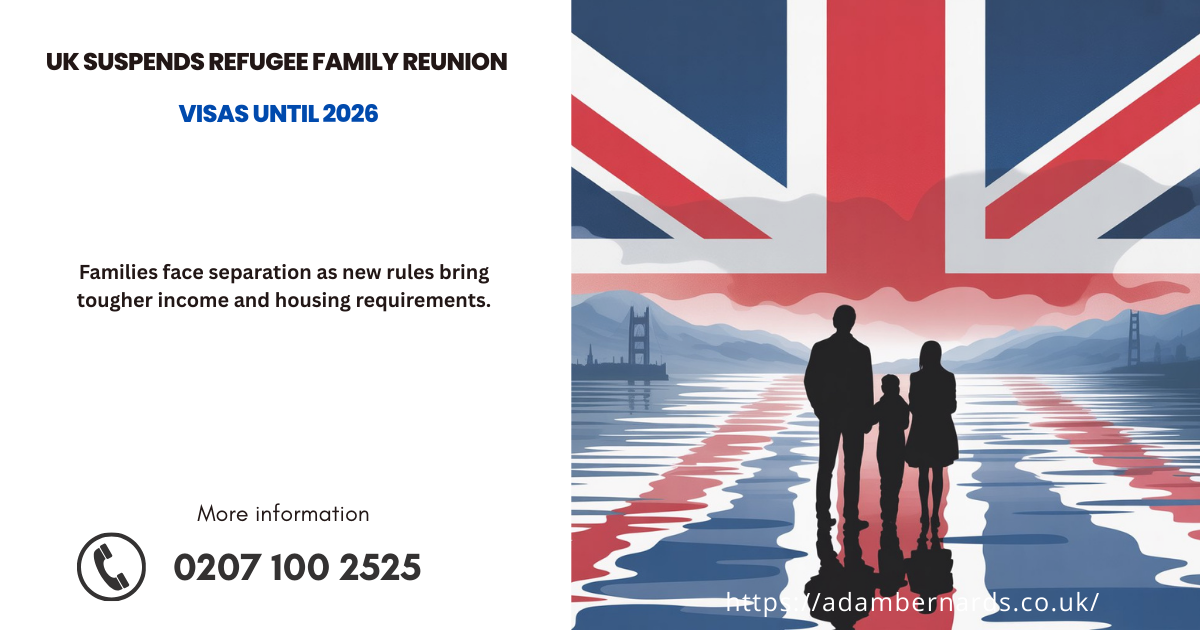The Breaking News
The UK government has confirmed that it is suspending new refugee family reunion visa applications until at least spring 2026. This announcement has left thousands of refugees in the UK and their loved ones abroad in a state of uncertainty.
Officials say the pause is necessary to prevent misuse of the system and to prepare for tougher new rules. For families who had hoped to reunite through this pathway, the suspension means an indefinite wait — and in some cases, the risk of permanent separation.
In this article, we will address the most common questions people are asking right now, explain the impact of the suspension, and provide guidance on what may come next.
Why Has the UK Suspended Refugee Family Reunion Applications?
The government argues that the suspension is needed to bring the refugee family reunion scheme in line with broader UK immigration rules.
When the scheme restarts in 2026, it will include:
- A minimum income requirement of £29,000
- Proof of secure housing
- Stronger documentation of family ties
- English language tests for family members
These tougher conditions mean that refugees will face the same requirements as British citizens applying for family visas.
Who Is Affected by the Suspension?
The suspension affects:
- Recognised refugees in the UK who had planned to apply to bring spouses, partners, or children.
- Family members abroad waiting for a safe and legal route to join their loved ones.
- Local councils and charities, who are warning of greater strain on housing and support systems.
For many families, this suspension has caused devastating emotional consequences. Some refugees have described the pause as destroying their plans for a future together in safety
What Are Charities and Campaigners Saying?
Refugee charities, campaigners, and some MPs have strongly criticised the suspension. They argue that:
- It closes one of the few safe legal routes for refugees.
- It risks forcing families apart indefinitely.
- It could increase reliance on people smugglers.
Local councils, already struggling to provide housing for asylum seekers, have also expressed concerns that the freeze will worsen pressures on services.
Conclusion
The suspension of the UK refugee family reunion visa scheme has created deep uncertainty for thousands of families. While pending applications may still be processed, no new applications will be accepted until spring 2026. Tougher rules are expected, including financial, housing, and language requirements.
Families now face longer waits, indefinite separation, and an unclear path forward.
At Adam Bernard Solicitors, we understand how serious this situation is for refugees and their loved ones.
We can advise you.















